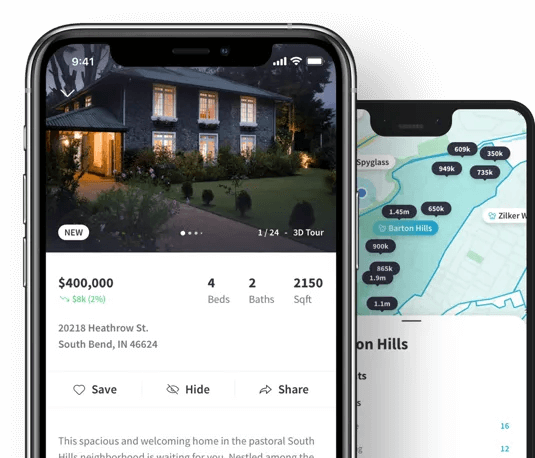You finally decided that you are ready for the next phase in your life. Purchasing a new house. You go house hunting and fall in love with what might be your dream home.
Then your Real Estate agent asked you if you already got a loan pre-approval. You thought you can get it after finding your dream house right? Well, you should have gotten it before house hunting
So what’s on the lender’s checklist and how do you get approved? Here are four criteria that Lenders check before they approve your loan
Credit Score
What is a credit score and how does it affect your mortgage? A person with a high credit score is considered creditworthy. What this means in simple terms is that a lender considers a person is capable, willing, and responsible to make loan payments within the agreed timelines.
The higher the credit score the more likely a mortgage loan would be approved. So does that mean you need a perfect credit score to buy a house? No, you don’t. Ideally, you should have a high credit score to get your loan approved. A low credit score is not a deal-breaker. Having a low credit score would mean that you might have to pay a bigger down payment and you need to pay for a higher mortgage rate. But is certainly possible.
Different loan types have different types of minimum credit score requirements. Check out the links to find out more.
Debt-to- income ratio
The debt-to-income ratio (DTI) is the percentage of your monthly income that goes to the payment of your debt. You can get your DTI by summing your debt payments and divide them by your gross monthly income. Most lenders follow the 28/36 rule. What this means is that 28% or less of your DTI should be going to your housing cost while the total of your total debt should be less than 36%. Total debt includes your housing, credit card, car loans, and other debt.
This also includes student loans. Although you don’t need to be free of student loans to get your mortgage approved, this would however make it more difficult to pay for your monthly mortgage. This would also limit the amount that you can borrow.
Down payment
How much do you need to pay for a down payment? The standard down payment used to be 20% of the selling price. But some lenders would only require at least a 5% down payment or less depending on the type of mortgage loan that you will be taking. Here is a link for the type of mortgage that you can avail of.
But here is the catch. Having a low-down-payment would mean that you have to pay for a higher monthly mortgage. If you are paying credit card bills, car loans, and student loans, this would impact your ability to pay on time.
Paying a 20% down payment would make you more attractive to sellers especially during bidding wars. Also, this increases your chances of having your mortgage approved and your offer accepted by the seller. Making a bigger down payment would give you more options to buy higher-priced Chattanooga homes.
There is nothing wrong with making a lower down payment and it would be extremely beneficial for low-income earners as well for those with minimal savings. Trying to pay a 20% down payment would impact your finances greatly. Compute how much you can afford at the moment and not what you can afford for the future.
To calculate your monthly mortgage, you can use our free mortgage calculator by clicking here
Employment history and Income
Employment history is one of the biggest factors to get your loan approved. What Lenders want to see is your employment history for the last two years. It doesn’t need to be with the same employer but ultimately, they want to determine if you are employable or you can easily find a job in case you leave your current employment.
If you are a traditional employee and have been with the same employer for 2 years or more, that helps you with your mortgage loan application. If you have another source of income, like a business, that would be better. Different types of loans have different requirements.
Going from a traditional employee (W-2) to an independent contractor (1099) raises concerns for lenders. That is because the latter’s pay is more unpredictable. You might need to be work as an independent contractor for 2 years or more to qualify for a mortgage. Apply immediately after you make such changes would affect your loan approval.
What matters most is that you can establish that you are employable and can make regular mortgage payments. This lessens the risk for the Mortgage Lenders. It is important to have all your employment documents and proof of income prepared before you apply for a loan.
Conclusion
If you don’t have a good credit score, does that mean you have to put your dream to buy a house on hold? How about a down payment? If you don’t enough funds to make the 20% down payment. Does that automatically deny your mortgage application?
There are exemptions to the rule. If you have a bad credit score, there are loans that would require a lower FICO score to approve. If you have the 20% down payment, there are loans that only require 5% of the total selling price. But keep in mind this would highly impact your mortgage interest rate.
When applying for a loan it is better to be prepared. Lenders would look at your credit score, DTI, employment history, income, and down payment to determine if you can pay for your mortgage. The bottom line, Lenders would minimize their risk as much as they can. But don’t be disheartened if you don’t meet all the criteria.
Visit a realtor and find out more about the house buying process. Most realtors would know reliable Mortgage companies that they have worked within the past.
If you are looking to find your next Chattanooga home, don’t hesitate to give us a call at +1 (423) 595 7958 or you can click here and will be more than happy to give you a call!










